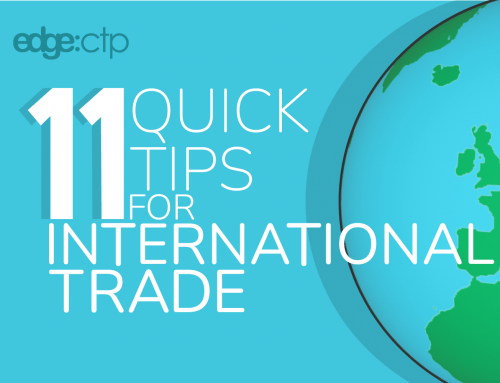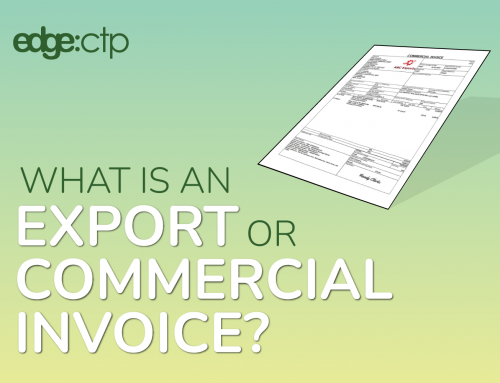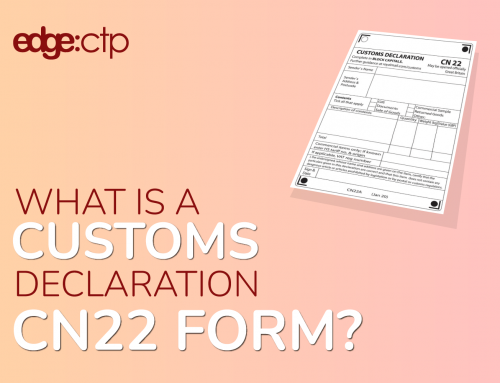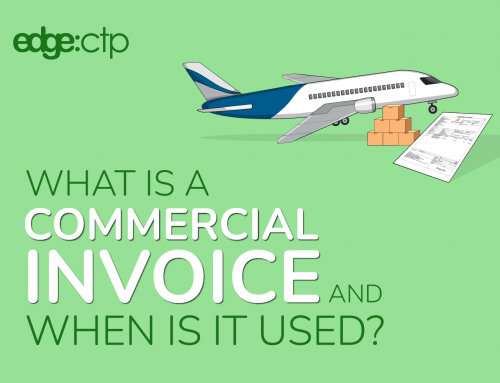Overview The Best Incoterm For Exporting Goods:
Selecting the best Incoterm is dependent on a number of factors, such as the experience of the exporter in exporting goods overseas; the experience of the importer in importing goods from overseas suppliers; if the product needs an export or import license for trading internationally; if the cost of goods dictates a certain level of expected service (i.e. delivery included); the delivery practices of the exporter’s competitors and the expectation on the exporter to match or do better etc.
Click here to listen to the audio blog version.
Ask An Expert:
Discussion with renowned global trade expert Murdo Beaton and Abdul Mann, creator of the cloud-based export solution EdgeCTP.
Geoff:
Gentlement today the question is: can you tell me which Incoterm is the best to use when exporting goods overseas?
Murdo:
This is always a question with which many exporters struggle, and possibly also importers, but the selection of the most appropriate Incoterm depends, as on many aspects. It depends on the longer term objectivity of the exporter in cultivating a sustainable and ongoing relationship with their particular buyer, and it also may depend on the level of international trading expertise of the exporter. If an exporter is new to the international scene it would probably be advisable for that exporter to consider adopting an Incoterm that did not take that exporter’s liability too far away from the exporter’s own factory.
On the other hand, you may have a mature exporter who looks at creating a long-standing sustainable relationship with a buyer, and of course, we all know that the most favourable term for a buyer might be to have the goods delivered to their premises. So if they identify a supplier who is willing and capable to do that without any distress to the buyer, then, of course, the buyer is likely to look favourably towards that supplier as an ongoing supplier.
Abdul:
So from a supplier/exporter point of view, it becomes a marketing or competitive edge over your competitors if you can provide more of a service with the Incoterm you decide to choose, i.e. delivering close to where the buyer is. So it’s like saying: “Don’t worry about it we’ll get the goods to you, just show me the money.”
Murdo:
(Laugh) Indeed, and I think that as we move forward with global development and as the global supply chain begins to extend itself, it is hugely important for exporters to be hugely competitive. So exporters have to be prepared to consider where the opportunities lie for them in whatever market they are targeting.
Remember it’s not just when we look at Incoterms and say “Which one is best for us?”, we must also consider what’s best for us in the longer term as well. The exporter needs to understand the long term objectives of trading in that market, and in doing so, it may well mean having to move away from simple Incoterms such as “ExWorks” (where the buyer comes to the exporter’s premises to collect the goods) to a term more comfortable for the potential buyer.
Abdul:
Let’s consider ExWorks for a moment; say you were a brand new exporter, never done exporting before and you’ve got an overseas enquiry that has turned into a sale, the simplest one would be ExWorks, which is like saying to the buyer: “Come and get it and take it away.” Then as your business and experience in international trade grows and want to add more value by being more customer focused, you could then start moving towards Incoterms that bring more value back to your overseas buyer.
Murdo:
Correct.
Abdul:
We should also consider the mode of transport. So if the buyer wants it shipped on a particular vessel then you’re kind of restricted, you can’t just say go with ExWorks because you might not have a port next to your factory so you’d have to look at another Incoterm to use in order to be able to do that.
Murdo:
If you’re going to agree to the buyer’s wishes then yes of course, but at the same time, you have to take it into account that the buyer is certainly looking to receive a quality product from you but they are also looking to receive it without too much distress. Now if you sell on an ExWorks basis and the buyer experiences a lot of distress in getting the goods from your factory to their warehouse, it may actually impact their ambitions to trade with you again, which would destroy any long term potentials of growing your business into that overseas market.
Abdul:
Especially if your competitor down the road will deliver it to their door!
Murdo:
Or indeed to a position between them with which the buyer is comfortable. Now this is almost akin to the issue of currency, you know “Should I be invoicing my buyer in Sterling?”, which for a new exporter the use of Sterling is absolutely fine and the obvious choice; whereas for the buyer paying in Sterling might cause certain complication as far as foreign exchange is concerned. So the attention to the currency that is going to be used in the transaction also carries just about the level of weight of the attention to the use of Incoterm.
So my advice would be: if you’re new to exporting then keep ExWorks in the back of your mind because it is the most favourable one. However, balance ExWorks with your own longer-term objectives. Understanding that in the support community (DIT, SDI, IoE etc.) around you there’s a lot of help available to allow you to understand what the additional risks and exposures are to you if you select a term other than ExWorks. Consider each Incoterm and assess the risks and exposures and also, of course, the benefits that could be available to you by selecting different Incoterms.
Geoff:
I hope you enjoyed this. If you’d like more information on international trade, go to www.edgectp.com






